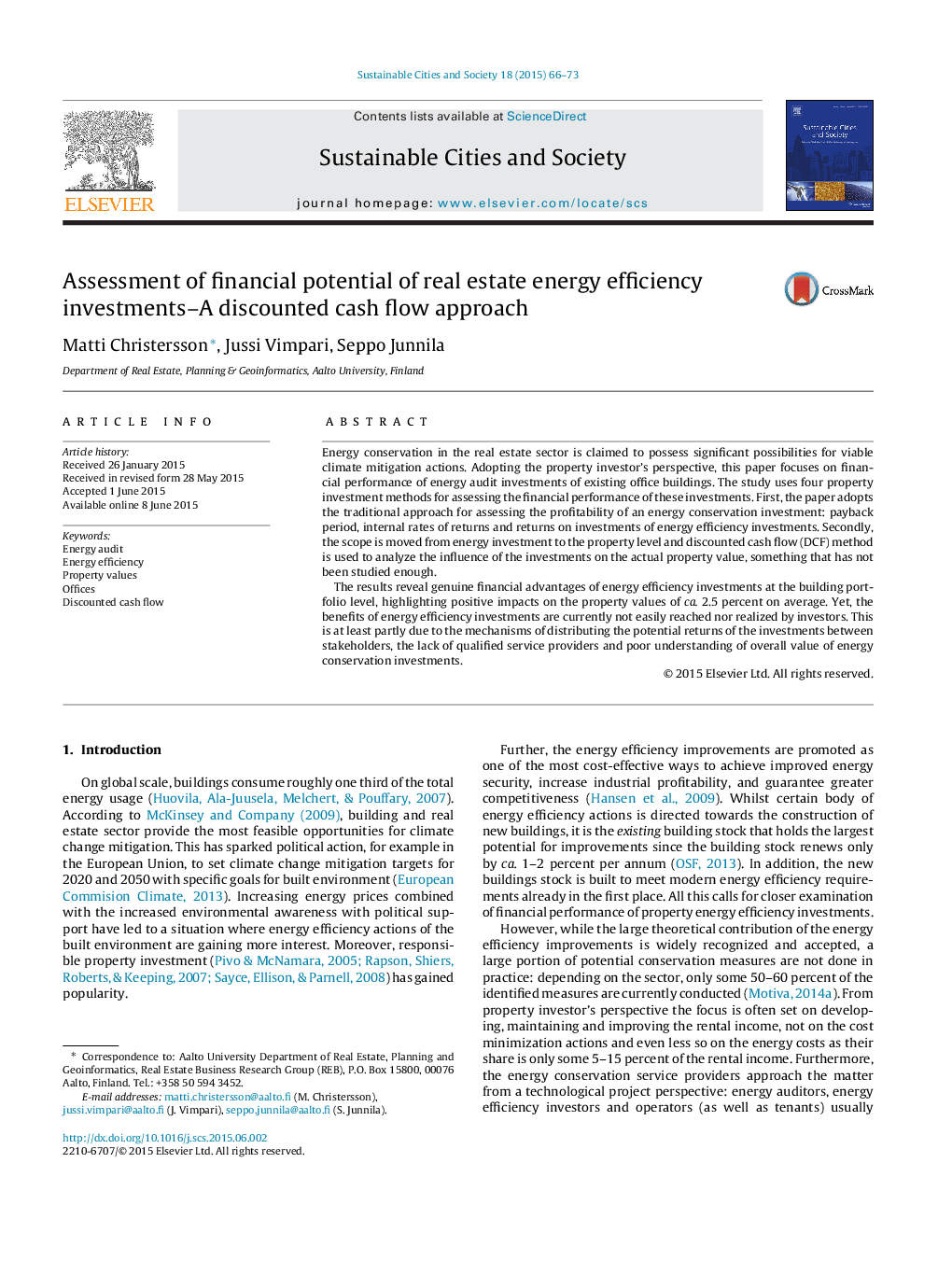| Article ID | Journal | Published Year | Pages | File Type |
|---|---|---|---|---|
| 308126 | Sustainable Cities and Society | 2015 | 8 Pages |
Energy conservation in the real estate sector is claimed to possess significant possibilities for viable climate mitigation actions. Adopting the property investor's perspective, this paper focuses on financial performance of energy audit investments of existing office buildings. The study uses four property investment methods for assessing the financial performance of these investments. First, the paper adopts the traditional approach for assessing the profitability of an energy conservation investment: payback period, internal rates of returns and returns on investments of energy efficiency investments. Secondly, the scope is moved from energy investment to the property level and discounted cash flow (DCF) method is used to analyze the influence of the investments on the actual property value, something that has not been studied enough.The results reveal genuine financial advantages of energy efficiency investments at the building portfolio level, highlighting positive impacts on the property values of ca. 2.5 percent on average. Yet, the benefits of energy efficiency investments are currently not easily reached nor realized by investors. This is at least partly due to the mechanisms of distributing the potential returns of the investments between stakeholders, the lack of qualified service providers and poor understanding of overall value of energy conservation investments.
